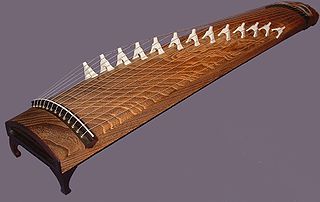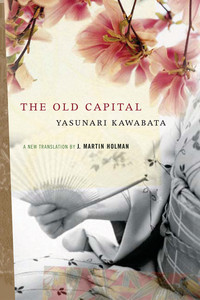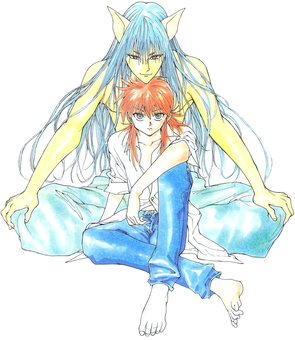Koto may refer to:
Koto may refer to:
Suzaku, Su-zaku, or Su-Zaku may refer to:

The koto is a Japanese plucked half-tube zither instrument, and the national instrument of Japan. It is derived from the Chinese zheng and se, and similar to the Mongolian yatga, the Korean gayageum and ajaeng, the Vietnamese đàn tranh, the Sundanese kacapi and the Kazakh jetigen. Koto are roughly 180 centimetres (71 in) in length, and made from Paulownia wood. The most common type uses 13 strings strung over movable bridges used for tuning, different pieces possibly requiring different tuning. Seventeen-string koto are also common, and act as bass in ensembles. Koto strings are generally plucked using three fingerpicks, worn on the first three fingers of the right hand.
Colon commonly refers to:
Jericho is a city, populated since ancient times, in the West Bank, in Palestine.

YuYu Hakusho is a Japanese manga series written and illustrated by Yoshihiro Togashi. It tells the story of Yusuke Urameshi, a teenage delinquent who is struck and killed by a car while saving a child's life. After a number of tests presented to him by Koenma, the son of the ruler of the afterlife, Yusuke is revived and appointed the title of "Underworld Detective". With this title he must investigate various cases involving demons and apparitions in the Human World, with the manga gradually becoming more focused on martial arts battles and tournaments as it progresses. Togashi began creating YuYu Hakusho around November 1990, basing the series on his interests in the occult and horror films and an influence of Buddhist mythology.

The Old Capital is a novel by Japanese writer Yasunari Kawabata first published in 1962. It was one of three novels cited by the Nobel Committee in their decision to award Kawabata the 1968 Nobel Prize in Literature.
Yu or YU may refer to:
Jin may refer to:
Hiei or Hiyei may refer to:

Kurama is a fictional character from the manga YuYu Hakusho by Yoshihiro Togashi. A Fox Demon reborn as the human Shuichi Minamino in modern life,[ch. 21] he is introduced as a thief who stole a supernatural mirror to save his dying mother from death. Although Kurama is initially portrayed as a villain, he becomes a supporting character to aid the protagonist Yusuke Urameshi in the next arc. Across his fights are revealed events from his past life as a demon, into which he becomes able to transform for a limited time. The character has also appeared in the anime adaptation, the two movies, and other related works.
Kiba may refer to:
Botan may refer to:
Toya may refer to:
Sakyō refers to the area east of Suzaku Avenue, the central avenue in the ancient capitals of Japan, especially Kyoto.
Yomi may also refer to:
Ruka may refer to:
Karasu, Kara-su, Kara su or Qarasu may refer to:

Ancient City, also known as The Old Capital is a 1980 film directed by Kon Ichikawa starring Momoe Yamaguchi and Tomokazu Miura in an adaptation of Yasunari Kawabata's novel The Old Capital. Momoe Yamaguchi and Masaya Oki made their last appearances in the film.
Ancient city or the ancient city may refer to:
Old Capital may refer to: